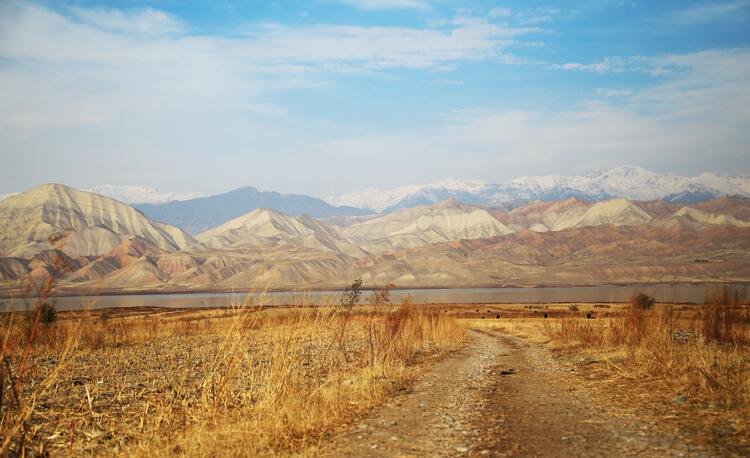A year or so ago I stumbled upon a blog by A.W., a missionary in Central Asia. I have found his posts about the local culture and Christian missions fascinating and edifying, so I reached out to see if he’d be up for an interview. He graciously accepted!
Christoph: Hi A.W., tell us a bit about yourself. Who are you and what do you do?
A.W.: I’m A.W. Workman, a cross-cultural church planter in Central Asia who grew up as a MK in Melanesia. I’ve been in Central Asia for seven years and also had seven years of working with Middle Eastern and Central Asian refugees in the US. Currently I help provide leadership for a small group of missionary teams working among a minority unreached people group. In the city where I live, I work as a teacher and also function as one of the temporary pastors of a small local church plant.
Christoph: How are you doing? How can we pray for you specifically?
A.W.: My family is in a season of mixed rejoicing and trials. We are very thankful to see the spiritual growth in the local believers that we are discipling, but many character issues continue to cause significant setbacks in the formation of a healthy church. Please pray that these local believers will be established in their faith and in Christlike character—especially in times of conflict. Pray also for my family as we navigate some significant health problems that we and our children have. Pray that we would live wisely and lean into the dependence on God that this kind of suffering can bring.
Christoph: What are 2 or 3 things that differentiate your culture from the US?
A.W.: The culture that we live in is one where honor, respect, and reputation are infused into every interaction. Far from the casual equality-loving culture of the West, our Central Asian culture prizes hierarchy, titles, and elaborate expressions of respect. This leads to an admirable respect for groups like teachers and the elderly. However, this also means that duplicity is a weak point of the culture and many will lie in order to save face and avoid offending others. Blood-family ties are also a key component of our focus culture, where extended families are always seeking to keep all relatives in line so as to advance the family’s honorable reputation and to avoid shame. The culture is highly relational, deeply hospitable, and often quite fun! But there are some very dark sides to the culture as well, such as honor killings.
Christoph: Help us understand the people in your city or country. In general, what do they care about? What do they want out of life?
A.W.: The people of our focus culture have been a large oppressed minority group for centuries. This struggle for recognition and freedom has shaped them tremendously. They are also deeply divided amongst their various tribes and parties and have a very low level of trust for one another. They long deeply for true hope and true peace since many feel jaded by Islam—especially since their main persecutors have been other Islamic people groups. After centuries of conflict, many simply long for a normal, prosperous life, believing that this will bring them the peace they are looking for.
Christoph: Humanly speaking, what are the major hurdles to someone in your country becoming a Christian?
A.W.: Most of our focus people group are moderate Muslims. However, leaving Islam is still a very frightening and dangerous possibility for them, one which presents a major hurdle towards faith. Many gospel categories barely exist in the local worldview and most have never heard the good news, assuming that Christianity is a works religion like Islam. So there is tremendous ignorance and a lack of gospel witness. If they personally know a believer and want to believe, then they face the possibility of family and societal persecution: the loss of housing, work, marriage prospects, and sometimes life itself.
Christoph: What do Christians in your city or country care about? What’s on their minds as Christians?
A.W.: Local Christians deeply care about their family and friends coming to know Jesus as well. However, they are also very afraid of persecution and backlash. They long for the freedom to be known legally as Christians without losing their ability to make a living in their homeland. Many long for stable work, for a believer to marry, for the freedom to have a Christian marriage ceremony, for the right to legally change their religion, for their kids to not be educated in an Islamic system, and for a way to be buried legally as a Christian. They also long to see healthy leaders emerge in their churches that are servant-hearted and not domineering.
Christoph: What are your goals as a missionary/church planter? When is your “mission” complete?
A.W.: As church planters our mission will be complete when we see a network of healthy local churches raising up their own qualified leaders and sending out their own cross-cultural workers.
Christoph: What are the greatest needs you see in your church?
A.W.: The greatest need in our church is for character development in the believers in general, but specifically in the men whom God is preparing to lead in the future. We also have a great need to learn how to navigate conflict and money issues biblically. Persecution issues also periodically present pressing needs. Pray for believing spouses!
Christoph: Thank you for your time, brother!
If you’d like to read more about A.W. and his work, I highly recommend his blog Entrusted to the Dirt. For more interviews like this one, check out the Interviews tag.
Photo: Kyrgyzstan, just one of many countries in largely unreached Central Asia. By Oziel Gómez on Unsplash
